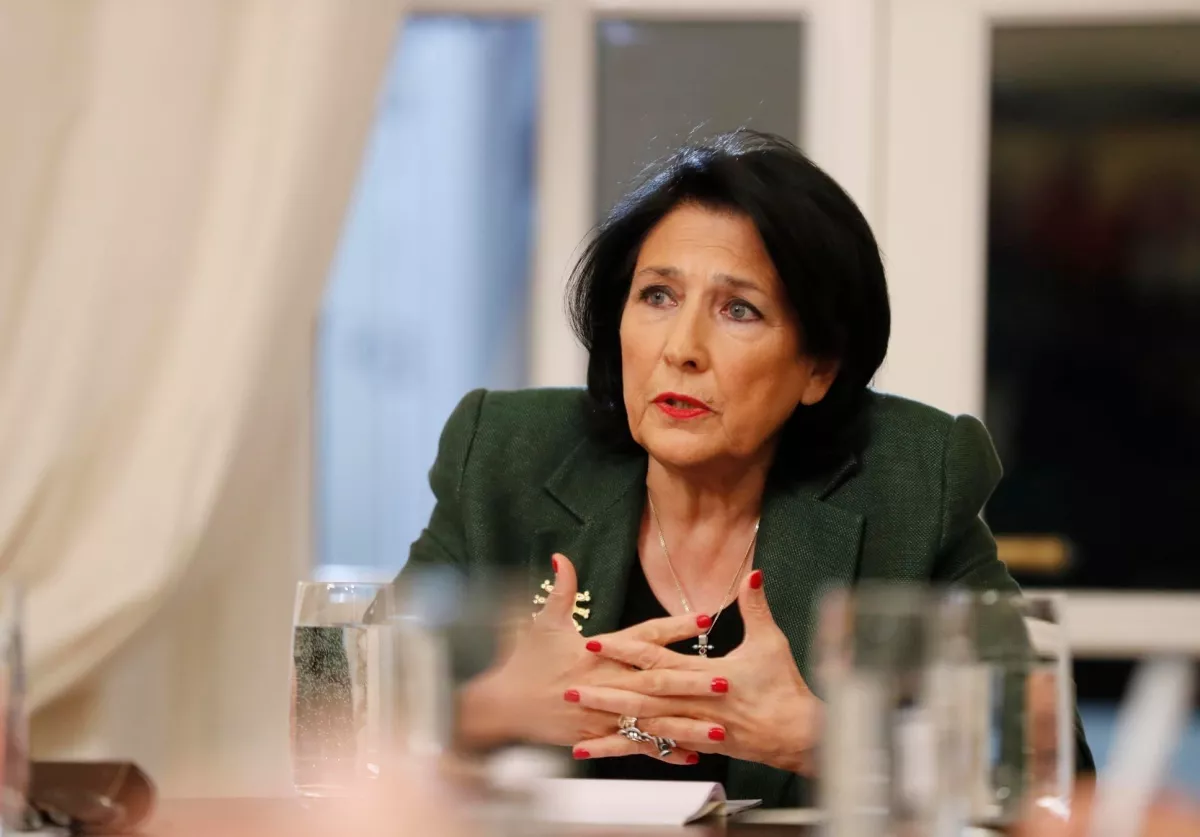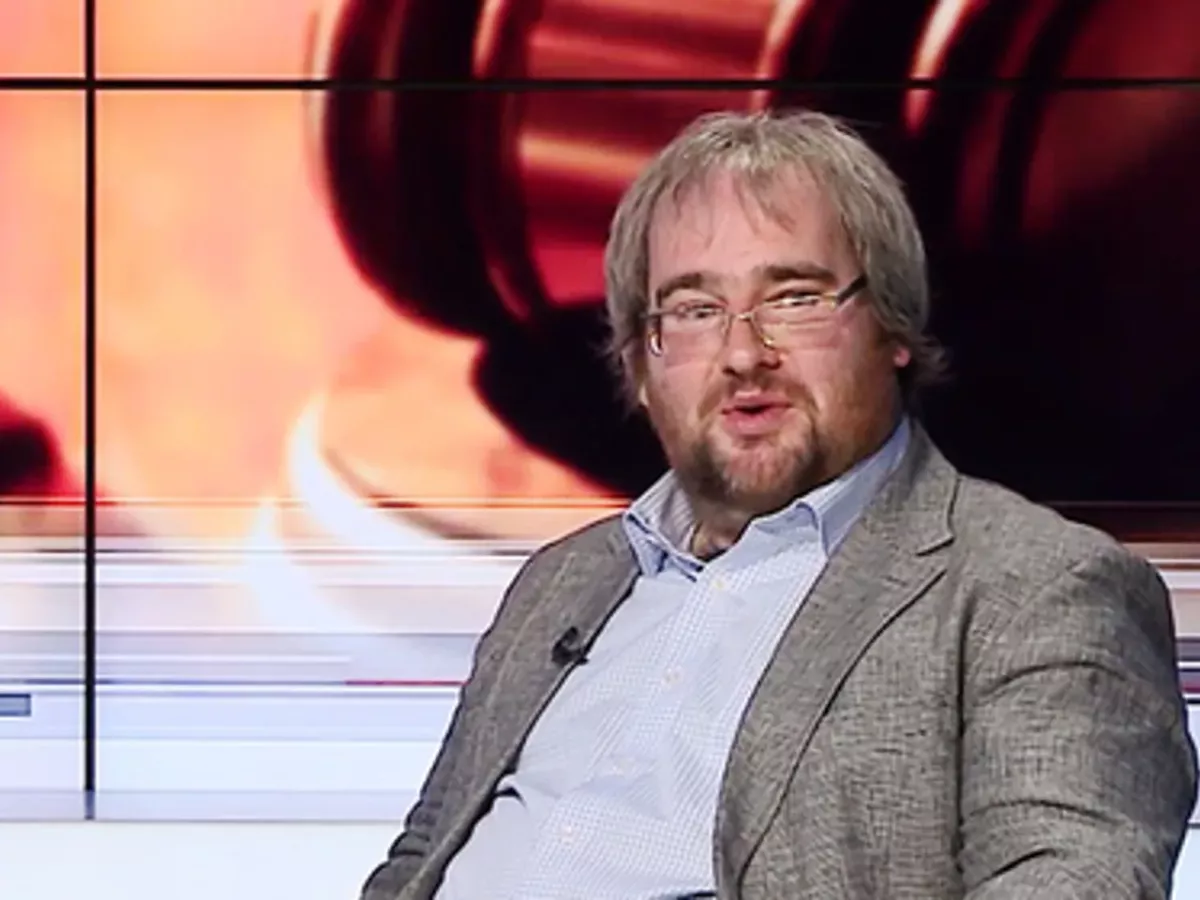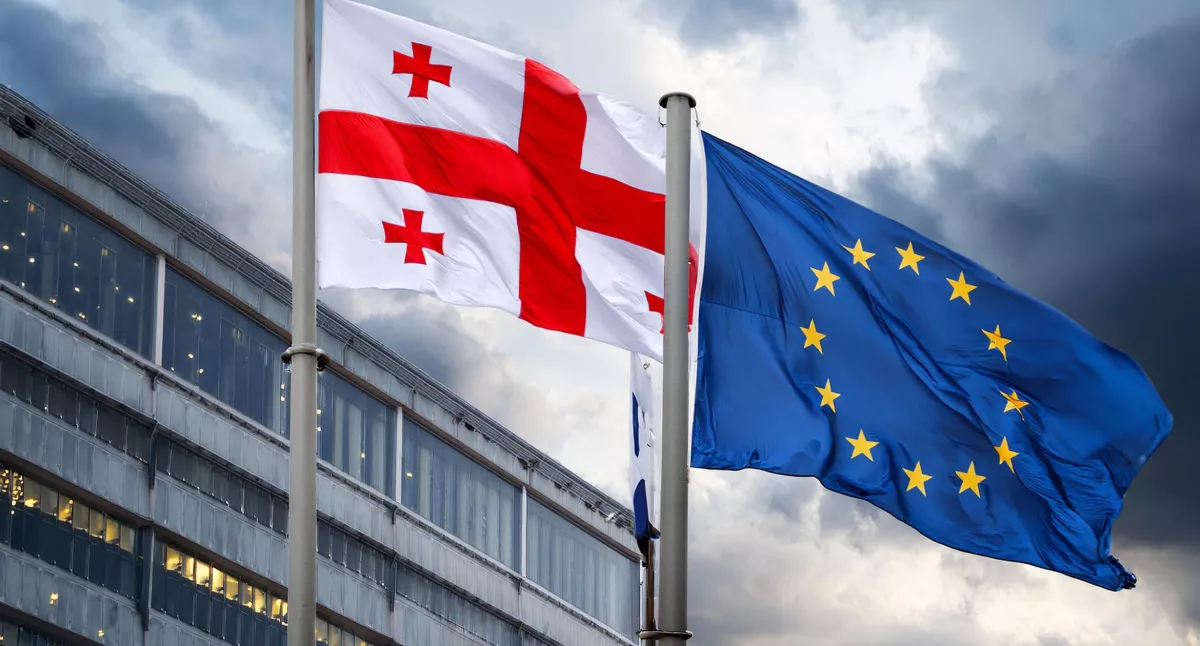Brussels’ games: How to draw Georgia into someone else’s war Article by Vladimir Tskhvediani
The rhetoric of Georgia’s pro-Western opposition has recently begun to change. Unlike the events of October 4, 2025—which, despite official claims that the opposition’s actions were “peaceful,” resulted in an attempt to forcibly seize the presidential palace in Tbilisi—there are now no calls for “peaceful” actions.
In the statements of opposition figures, alongside the emphasis on “pressure on the regime” from abroad and “regime change,” which is invariably described as “occupational” and “Russian,” increasingly, “military undertones” are becoming apparent.

As recently as November 13, 2025, former President Mikheil Saakashvili asked Ukrainian President Volodymyr Zelenskyy to grant him the status of a “civilian prisoner” in the Russia–Ukraine war. Essentially, he is hinting that the “frontline” of this war runs—or could run—through Georgia, where he is currently imprisoned.
Another former Georgian president, Salome Zourabichvili, wrote on her Facebook page about the need to create a “technical government” composed of opposition figures in case of a possible “collapse of the regime” of the ruling Georgian Dream party. She reminded readers that she had proposed forming such a government before the 2024 parliamentary elections, aiming to seize power from Georgian Dream in the event of its “defeat” in the elections.
At the time, there was a real threat of dual power and civil war in the country. However, the opposition and Zourabichvili lacked the necessary force. Meanwhile, the Georgian authorities managed to neutralise attempts by the opposition—and by Zourabichvili herself—to incite bloodshed, including by involving children in protests and attempting to provoke clashes with the police.
As far back as late 2024, some experts believed that many Georgian volunteers fighting in Ukraine could join opposition protests. This further heightened the risk of destabilisation and dual power, as Georgian security forces could have faced opponents with actual combat experience.

However, on December 1, 2024, at the height of the protests, Salome Zourabichvili reacted sharply and negatively to a statement by Georgian volunteers fighting for Ukraine, who had expressed their desire to return home to “defend its national sovereignty.”
It is likely that in 2024, the opposition considered it important to emphasise the “strictly peaceful” nature of their actions. Moreover, Ukraine’s military leadership simply could not allow large numbers of foreign fighters serving with the Armed Forces of Ukraine to return home due to the difficult situation on the frontlines.
Meanwhile, on the actual Russia–Ukraine front, a rapid ceasefire in Ukraine may soon be possible. The 28 points of the “Trump Plan”—a proposed peace agreement for Ukraine—have been published. Among them, one point stands out in particular: the Ukrainian Armed Forces would be limited to 600,000 personnel, down from the current 800,000–900,000.

Ukrainian political analyst Dmytro Korniychuk believes that the condition to reduce the size of the army was included in the plan at the initiative of the Ukrainian side itself. He explains that, as long as hostilities continue, the Ukrainian army is largely funded through external financial assistance. Once a ceasefire is concluded, this support will inevitably decline, and the question of reducing the army—whose upkeep would be unsustainable for a war-torn country—will arise on its own.
If the army reduction is explicitly included among the terms of a ceasefire, it will be easier for the government to justify a mass demobilisation, retaining mainly a highly professional and motivated “core” within the Armed Forces of Ukraine.
The demobilisation of Ukrainian citizens after the war is entirely predictable. Most will return to civilian life in their country, while some will seek work in EU countries, giving Brussels another reason to restrict labour migration from Georgia, including by potentially revoking visa-free travel.
Inevitably, questions will also arise regarding the future of foreign volunteers who fought for Ukraine, among whom one of the largest contingents is Georgian citizens. There will be no more “combat work” for them in Ukraine, especially considering the downsizing of the Ukrainian army. Moreover, a potential cancellation of visa-free access to the EU would effectively “close” Europe to those Georgian citizens currently fighting in Ukrainian units.
At the same time, the desire of the Georgian opposition’s “European sponsors” to open a “second front” in Georgia after a ceasefire in Ukraine is unlikely to diminish. This includes anti-Russian politicians in Poland and the Baltic states, who consider war with Russia by their own countries virtually inevitable and openly express interest in keeping Russia “bogged down” in combat elsewhere for as long as possible.
The mass return of “Ukrainian war veterans” to Georgia could easily be used by the “pro-European” opposition and EU leadership for another attempt at regime change—but this time through a “not entirely peaceful” path, given the combat experience of Georgian volunteers who fought in Ukraine. Their political views are no secret: it is almost impossible to find supporters of Georgian Dream among them. In line with opposition propaganda, they regard the current Georgian government as “Russian” and openly express on social media their conviction that “Putin will have to be fought in Georgia.”
Meanwhile, the opposition and pro-Western NGOs have already begun positioning Georgian volunteers who fought in Ukraine against the Georgian authorities. For example, following the attempt to seize the presidential palace in Tbilisi on October 4, 2025, one of the detained participants was Avtandil Surmanidze from the NGO “Alternative,” who had fought in Ukraine. Opposition and Western media highlighted his arrest, and social media began circulating calls for other Ukrainian war veterans to demonstrate “combat brotherhood” in opposition to the Georgian authorities.

The confrontation between the Georgian authorities and EU leadership is intensifying, and there is a risk that, in the event of a ceasefire in Ukraine, the “information agenda” of stirring anti-Russian military sentiment could shift to Georgia. The mere refusal of the Georgian authorities to engage in military adventures and open a “second front” against Russia is already being presented in the EU as “evidence” that “Russian proxies” are in power in Tbilisi.
The pro-Western opposition could once again attempt to destabilise the situation by involving volunteers returning from the Ukrainian war. Moreover, if a ceasefire in Ukraine leads to the downsizing of the Ukrainian army, a significant number of other foreign nationals who fought for the Armed Forces of Ukraine will also be left without duties—and many of them could easily travel to Georgia to join their “combat brothers” under the guise of being “tourists.”
In such a scenario, measures taken by the Georgian authorities to maintain order could be portrayed not only as “repression by a pro-Russian regime” but also as “continuation of the war with Russia on a new front.”
By Vladimir Tskhvediani, Georgia, exclusively for Caliber.Az








